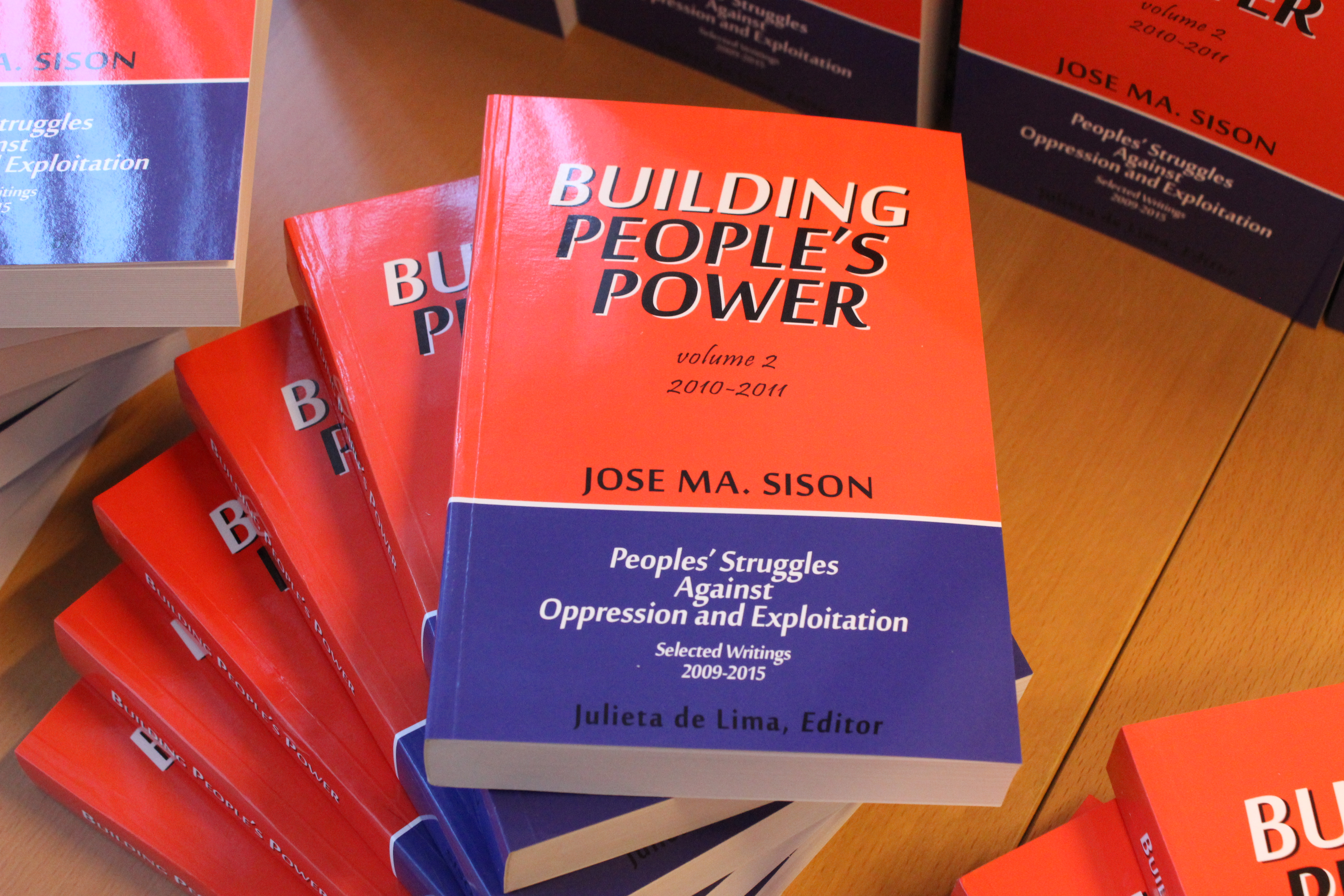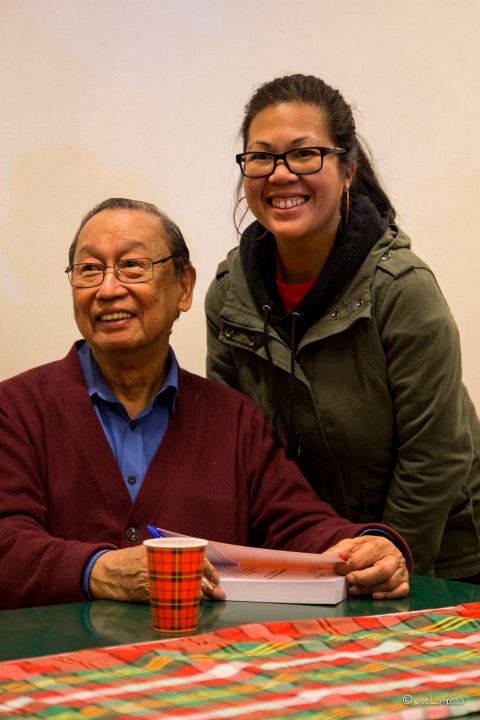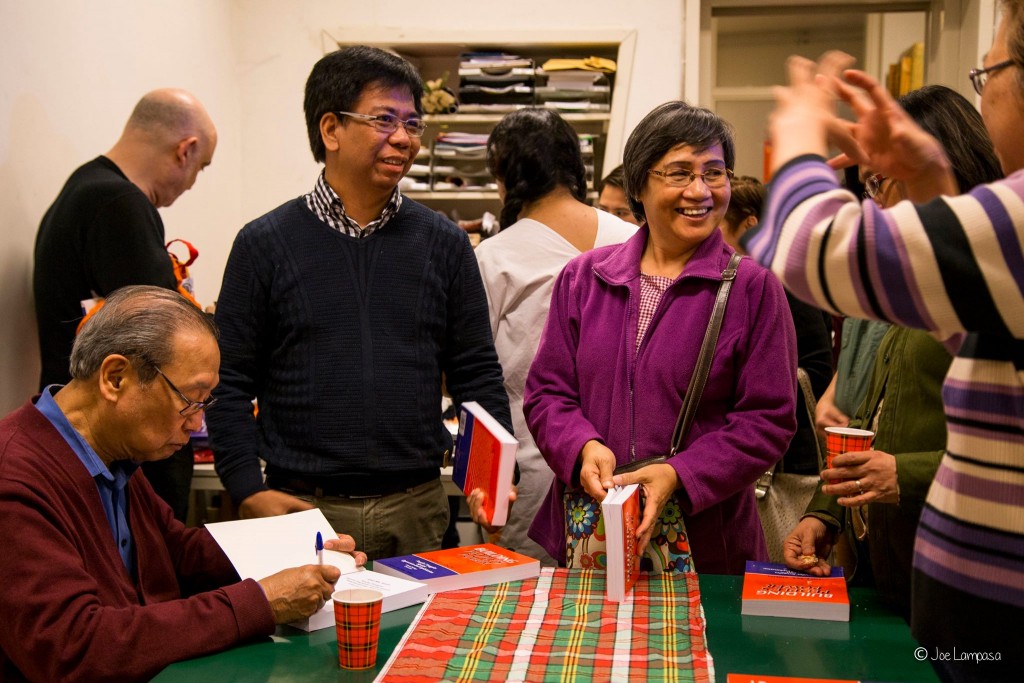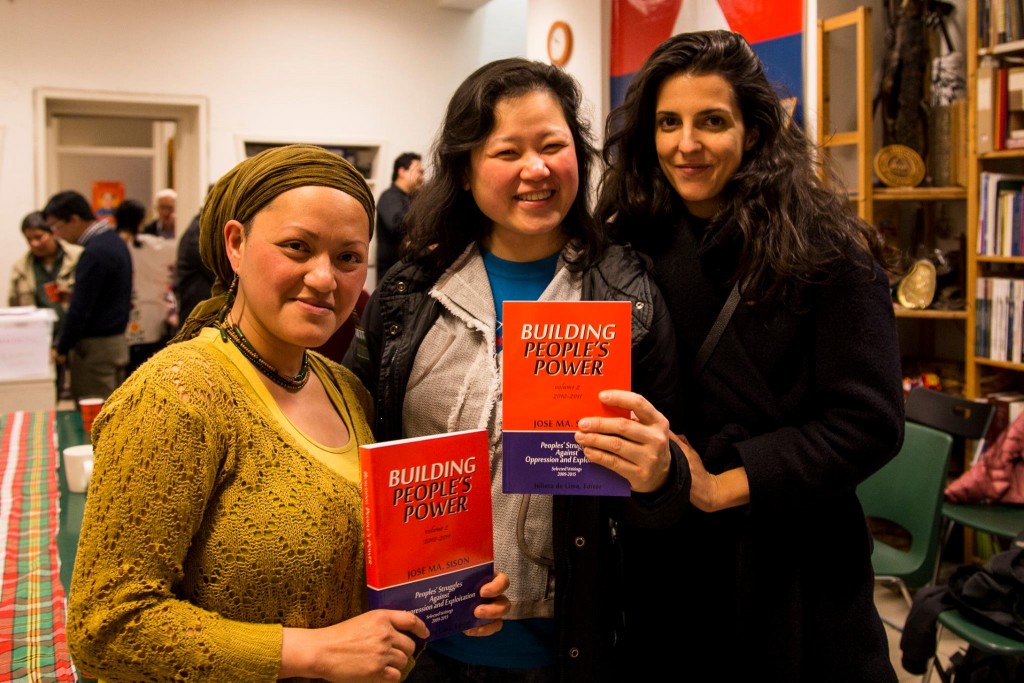

Building People’s Power is mainly a collection of Sison’s writings from July 2010 to December 2012. These take up historical and current Philippine issues as well as global issues and show the way to arouse, organize and mobilize the people in the anti-imperialist and democratic struggle.
By RIO MONDELO
Bulatlat.com
April 16, 2016

UTRECHT, The Netherlands – Jose Maria Sison, chief political consultant of the National Democratic Front of the Philippines (NDFP), launched another book, April 10 at the NDF International Information Office here.
Building People’s Power is mainly a collection of Sison’s writings from July 2010 to December 2012. These take up historical and current Philippine issues as well as global issues and show the way to arouse, organize and mobilize the people in the anti-imperialist and democratic struggle. He wrote on Philippine issues mainly in his capacity as founding chairman of the Communist Party of the Philippines (CPP) and on global issues as the chairperson of the International Coordinating Committee of the International League of Peoples’ Struggle (ILPS). The book was edited by Juliet de Lima, a member of the NDFP panel in its peace talks with the Philippine government.
In his opening remarks, Luis Jalandoni, chief international representative of the NDFP and chair of the NDFP peace panel, welcomed colleagues and guests. He cited Sison’s role in conceiving, establishing and guiding the NDFP since its founding on April 24, 1973.
In his review of the book. Francis Gealogo, history professor at the Ateneo de Manila University, said that “reading through Jose Ma. Sison’s latest book, is like being brought to the forefront of the struggles of the Philippine national democratic movement on a first hand account, with a perspective from within.”
Gealogo said that “while the focus of the book is on the contemporary conditions, it is evident that all of the articles included were historically grounded and contextualized.” The global contexts, Gealogo stated, were always present in all of the articles, with discussions on the conditions and issues confronting the societies and people? movements in Greece, Tunisia, Korea, Kurdistan, Indonesia, West Papua, Libya, Egypt, Germany, the Philippines, the UK and the region of North Africa and the Middle East as these societies confronted and challenged the forces of American imperialism and reaction.
Overall, Gealogo said Sison’s essays elaborate the running theme of the book – that the people’s revolutionary movements all over the world developing within the context of the inability of imperialism and reaction to resolve the deepening global crisis will constitute the main historical driver in the transformation of human societies in the periods to come.


In her separate review, Malu Villañueva, a leading Filipina activist and professional from Philippine migrant organizations Kabalikat and Pinay sa Holland, cited the dialectical relation between the Party that leads and the masses who must act to fulfill their historic mission as the theme running through many articles in the book.
Villañueva said that even as the author congratulates the people for exercising and asserting their sovereign right and power to change society in the “Arab spring” that succeeded in toppling the repressive regimes in Tunisia and Egypt to the upsurge in mass protests in the US and Europe that produced the “Occupy Wall Street” and “Indignados”, Sison is acutely aware of the limits of what spontaneous movements can accomplish but at the same time keeps his revolutionary optimism and patience.
In his speech, Malcolm Guy, ILPS general secretary and Canadian filmmaker related that he attended an anniversary celebration of the CPP attended by more than 5,000 in one mountainous guerrilla base of the CPP last year. Guy said it’s for a documentary on Sison and de Lima that he’s working on. “The NPA fighters put on an impressive show. I was struck that many of the fighters were women and that there was an impressive number of indigenous people, mostly Manobo, among the fighters. They were extremely smart, energetic and brave, and clear about their revolutionary goals, and ready to give their lives for that goal of freeing the people of the Philippines from reaction and imperialism. And as I talked with them I realized that they all had studied at least one of Professor Sison’s other books, the famous Philippine Society and Revolution,” Guy said.
“Once again I realized the power of Prof Sison’s writings. These were not theoretical treatises, but books written in the heat of the the revolutionary struggle, books with a purpose, books arising out of our practice, books to help guide the revolutionary struggle in the Philippines… and the world,” Guy said.
Sison thanked the organizers, the NDF Information Office, the International network for Philippine Studies and ILPS-Netherlands for the book launch and for timing it with the end of the meeting of the ICC of of the ILPS. Sison said the timing is appropriate because most of the content of the book consists of speeches and statements he wrote as chairperson of the ILPS in 2010 and 2011.
“The title of the book lays the emphasis on building people’s power by arousing, organizing and mobilizing the masses. Indeed, quite a number of the contents directly deal with the building of the mass movement, including the legal mass struggles and the people’s war, and express support for major mass struggles as well as condemn imperialist plunder and war and state terrorism in various countries of the world,” Sison said.
The book launch was followed by a stirring cultural performance of a poem written by Mexican performance artist Inti Barrios Hernandez about the forced disappearance of 43 students who were abducted by armed authorities in Tamaulipas, Mexico. Hernandez and Mitchy Saturay of Linangan Cultural Network led the dramatic performance and engaged the audience in the search for the disappeared. They recited the poem with Sison.
Paloma Polo, a well-known Spanish visual artist, served as the emcee during the book launch. Polo is a co-founder of La Solidaridad Hispano-Filipina, the director of Project Unrest based in The Netherlands and is a member of the ICC of the ILPS.